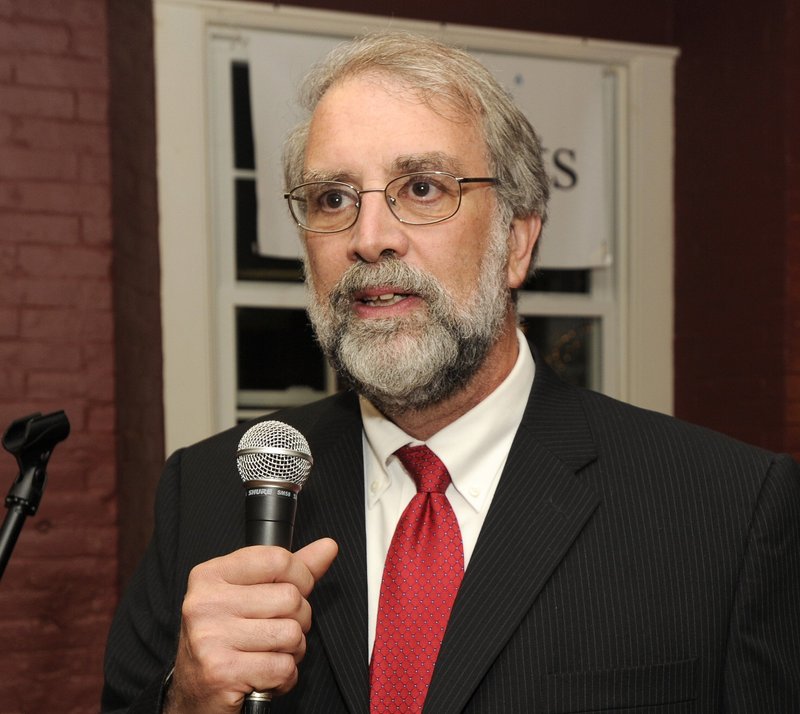Need a break from all the debate over virtual schools in Maine?
State Rep. Alan Casavant, D-Biddeford, offers Legislative Resolution 1729 for your consideration: “Resolve, To Create a Study Group to Research the Possibility of a Virtual Legislature.”
Stay away from that delete button. As much as this might sound like one of those weirdly titled proposals that get tossed into the legislative hopper at the beginning of each biennium (my favorite this time around: “An Act to Dissolve the Lisbon Water District”), Casavant is not proposing that Maine start governing itself via video game.
Rather, the veteran lawmaker, who also happens to be the busy mayor of Biddeford, thinks that when it comes to good government, the road to Augusta is no match for the information superhighway.
Take last week, for example.
“On Tuesday, I drive up (to Augusta) for a 10 o’clock meeting and we’re out by 10 minutes of 11 and I drive back,” Casavant said in a telephone interview Friday from Biddeford. “It seems to me like that’s a complete waste of gasoline.”
And that’s just his gas bill. What about all those constituents of Casavant’s who would love to testify at a committee hearing but lack the time (three hours round trip) and money (about $28 in fuel and tolls) to journey to and from the State House?
Casavant’s brainchild: Use Maine’s state-of-the-art fiber-optic network to bring government to the people rather than vice versa.
Don’t get him wrong. Much as the sight of Gov. Paul LePage delivering his State of the State address to an empty House chamber might delight some Mainers, Casavant fully acknowledges there will always be times when face-to-face trumps Facebook-to-Facebook.
“But there are times where it would seem, especially with high-definition fiber optics, that you could connect cities in various parts of the state and eliminate the need for people traveling (to Augusta) and staying overnight,” he said.
Casavant envisions high-tech “pods” in easy-to-get-to locations around the state where lawmakers could conduct some of their lower-level housekeeping — and in the process save taxpayers the $70 per day in mileage and meals reimbursement that legislators collect for each in-session trip to Augusta.
But what about all the schmoozing that goes on under the State House dome? Isn’t that part of governing?
“I try to avoid the schmoozing as much as I can,” Casavant replied. “I just find that schmoozing alters my objectivity.”
Nor would he miss doing an end run around the legions of lobbyists who plant themselves between the House and Senate chambers, desperate for a chance to bend his ear.
“Usually when you have lobbyists involved, you’re just getting one side of the coin,” Casavant noted. “As a legislator, I always try to keep in the back of my mind, ‘They’re nice people and I enjoy talking to them, but there’s an unrepresented side that’s lacking in Augusta — and generally it’s the people back home.”
Which brings us to what well might be the most attractive part of Casavant’s proposal: Legislative hearings at which a citizen of, say, Madawaska could address a full committee without having to drive south for six hours, wait in line for another two or three hours to testify, spend the night at an Augusta motel and then drive home another six hours the next day.
“Let’s face it, in the business world, what are they doing now?” Casavant asked. “They have people working at home right off their computers and connecting with everyone all over the world.”
Casavant is hardly the first person to see enhanced democracy in cyberspace. Brenda Erickson, a senior research analyst with the National Conference of State Legislatures, has been exploring the possibilities since as far back as 1999.
Her conclusion: Virtual lawmaking can work in some ways, while in others it can’t.
“More often than not, legislators are open to testimony from citizens via electronic methods,” Erickson said in an interview Friday.
But the more virtual lawmaking veers toward “remote voting” by lawmakers away from the state capital, she said, the less buzz it generates.
“Almost always, the main concern is the integrity of the process,” she said. “The citizens would want some certainty that the legislative process is being upheld, that a lobbyist is not sitting next to that person” while he or she casts a vote.
No argument there from Casavant, who still maintains that his six years (and counting) in the Maine Legislature have often been — how do we put this tactfully — a complete waste of time.
“It don’t know where (L.R. 1729) goes, but it has intriguing potential,” he said. All he’s asking is to view the entire legislative experience through the prism of these rapidly changing times.
“Pull in the technology people,” Casavant urged. “The people who know the business and what it means for government.”
People like Fletcher Kittredge, CEO of the Biddeford-based Internet provider GWI and a major backer of Maine’s recently completed Three Ring Binder project. The 1,100-mile network of high-speed, fiber-optic cable puts Maine at the cutting edge of Internet communications from Kittery all the way to Fort Kent.
“Obviously, you’d have to do it with great care and forethought,” said Kittredge, who sees already-wired school libraries as potential legislative satellite locations. “But there isn’t any reason this couldn’t work — certainly no technical reason.”
Meaning 10 years from now, the highway to Augusta will be the road less traveled?
“I really don’t think it will take that long,” Kittredge predicted. “Within 10 years we’ll have driverless cars. This will look pretty tame compared to that.”
Driverless cars?
Next up: “Resolve, That All Mainers Stay the Hell Off the Road.”
Columnist Bill Nemitz can be contacted at 791-6323 or at:
bnemitz@mainetoday.com
Send questions/comments to the editors.



Comments are no longer available on this story